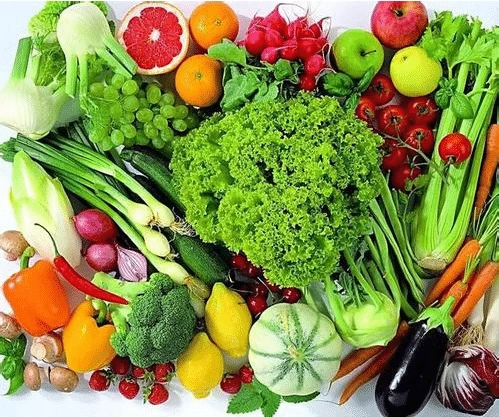RFID Vegetable Supply Chain Creates Green and Healthy Life
The contribution of RFID in traceability and anti-counterfeiting is very large. The unique encoding of RFID tags makes security anti-counterfeiting a major feature. RFID vegetable supply chain technology creates a green life and makes vegetables more secure. RFID traceability anti-counterfeiting technology enables people to build a bridge of mutual trust with food safety.
The vegetable supply chain, like most agricultural product supply chains, also includes several links such as production, processing, storage, transportation and sales. By using RFID, the information of each link in the entire supply chain can be easily read into a public database, and the data of each link can also be easily added to each link. Consumers and related departments can also conduct inquiries and traceability through communication networks and terminals.
The production link mainly refers to a relatively large-scale and standardized vegetable planting base, which is generally large-scale planting and intensive management, so that it has the conditions for using RFID. You can set a label for each plot or variety, and enter information about the plot or the variety of vegetables from planting to packaging, such as vegetable varieties, growing time, pesticide application, and fertilizer, Harvest time, etc., according to agricultural product coding standards, set a number for each type of vegetable as its unique identification. In this way, when the variety of vegetables completes the first link of the supply chain, the electronic tag has stored all its basic information. Acquired companies can also quickly understand the information of commodities, and provide basic data for query systems, drug residue testing systems, e-commerce and other systems for agricultural product processing enterprises, and provide source data for product traceability.

As a seasonal product, vegetables have high requirements for the warehouse environment. For vegetables that need to be stored in the warehouse, they are read by electronic tag data before storage. The packaging specifications and weight are automatically read into the computer and processed by the computer. According to the characteristics of the warehouse, inventory information is formed, and the instructions for entering the storage location, shelf, and cargo location are output. During the inventory, the terminal reads the electronic label on the vegetable package and records the number of inventory in real time. After the on-site inventory is completed, the inventory staff confirms the inventory and uploads it to the background database. You can also change the inventory data automatically when you leave the warehouse without too much manual participation. The use of RFID is greatly accelerating the speed of entering and leaving warehouses and warehouses, and reducing the error rate.
The application of RFID in the transportation of fresh vegetables is mainly reflected in the monitoring, tracking and port inspection of goods in transit. The combination of RFID and GPS can provide real-time monitoring and tracking services for logistics companies. At the same time, the owner can also easily know where the goods have arrived through the computer network. When the inspection is passed through the port, the inspection unit does not need to be dismantled When opening vegetable packages, as long as the handheld reader can know the specific content of the packaged product, it greatly improves the speed of port inspection and relieves the port squeeze.
The application of RFID in the retail sector is manifested in anti-theft packaging of vegetables in retail stores or supermarkets, monitoring of vegetable expiration dates, and temporary sales. RFID anti-theft technology is to place electronic tags in the product packaging, and the computer system monitors the tags of various goods in the store in real time through the on-site reader and other supporting facilities. In this way, retailers can safely open shelves for sale. RFID tags can monitor the expiration date of certain time-sensitive products, such as tracking a certain food. Once the expiration date is exceeded, the tag will issue an alarm.
The application of RFID in the fresh vegetable supply chain is becoming more and more extensive. The unique coding of RFID tags provides a strong guarantee for security and anti-counterfeiting. It not only communicates high-quality data in the supply chain, but also guarantees a strong basis for food tracking from source. Build a bridge of trust between people and food safety, and create a safe shopping environment.




